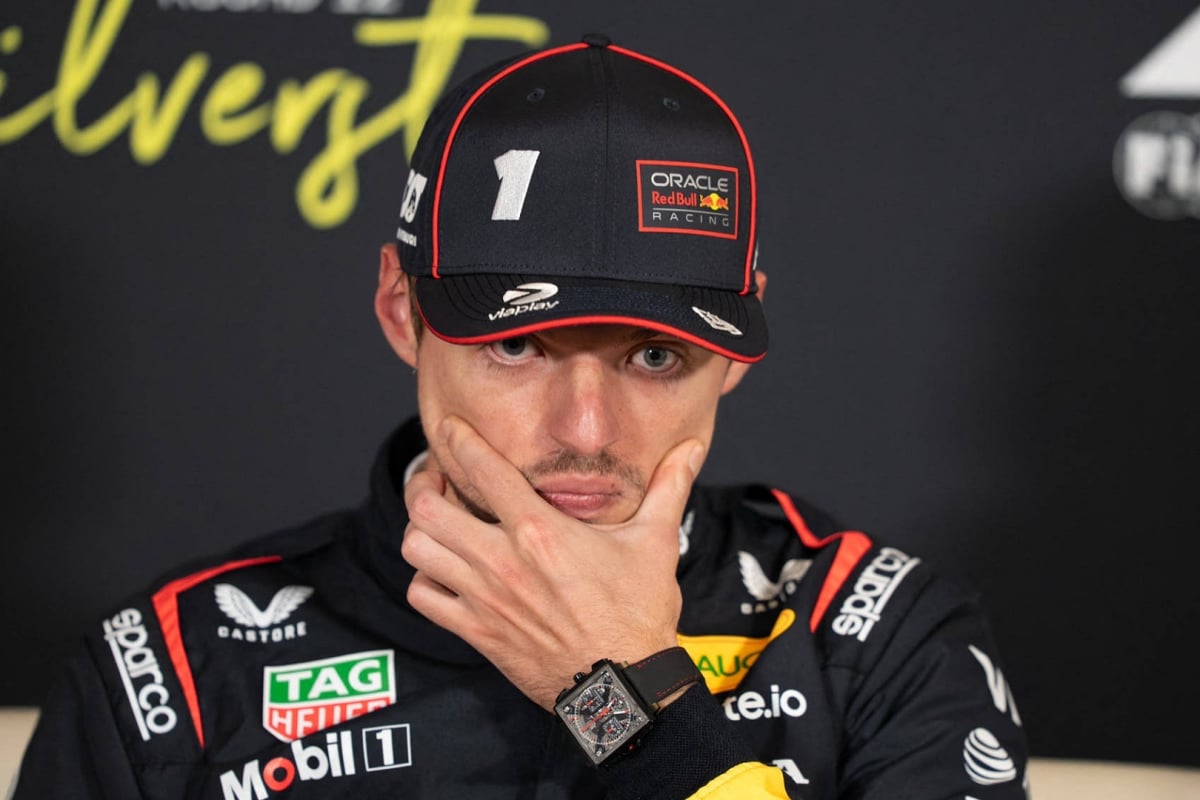Why Max Verstappen Is Responsible for Red Bull’s Decline.
Max Verstappen has delivered one of the most successful and dominant eras in modern Formula 1. In 2023, he stormed to the championship with ruthless consistency, and in 2024, he did it again—even in a car that was starting to fall behind its rivals. From the outside, Red Bull owes everything to Verstappen. In fact, it has built its entire operation around him. But that dependency, once a winning formula, now threatens to become the team’s undoing.
Since Verstappen joined Red Bull in 2016, he has become the undisputed centerpiece of the team. From the car’s design philosophy to on-track strategy, every element has been tailored to suit him. And for good reason—he is a once-in-a-generation talent capable of delivering world championships even when the machinery isn’t perfect. This approach delivered incredible short-term results: four consecutive drivers’ titles, multiple constructors’ championships, and an aura of dominance that made Red Bull the envy of the paddock. But in doing so, Red Bull made a fundamental mistake. It stopped building a team—it built a Verstappen machine.
As a result, other aspects of the operation were neglected. The second seat became a graveyard for talented drivers who simply couldn’t adapt to a car tailored to Verstappen’s unique style. Pierre Gasly, Alex Albon, and Sergio Pérez all struggled in an environment that seemed more interested in supporting one man than nurturing team-wide performance. And now, when the car has lost its edge and other teams like McLaren and Mercedes are catching up, Red Bull finds itself with a shallow driver lineup and a structure no longer capable of adapting without its central figure.
Making matters worse is the talent exodus Red Bull suffered in 2025. Adrian Newey, the technical genius behind many of Red Bull’s most successful cars, is gone. Jonathan Wheatley, an integral part of the team’s race-day operations, has also departed. Both were instrumental in turning Red Bull into a well-oiled winning machine, and their absence is already being felt. The car’s development has stalled, the team’s management appears disjointed, and the sense of absolute confidence that once defined Red Bull has evaporated.
Despite this, Verstappen continues to perform miracles. He is the only reason Red Bull remains in contention against the increasingly competitive McLarens. But this is part of the problem: the team has become so reliant on Verstappen that it can no longer function without him. He is the glue holding the structure together—and if he leaves, the whole operation could collapse.
And that scenario is more realistic than Red Bull would like to admit. Verstappen has been open about his interest in leaving Formula 1 early. He has a young family, other motorsport interests, and a legacy that is already complete. He doesn’t need to stay—and if Mercedes or another top team can offer him a better future after the 2026 regulation changes, why wouldn’t he go? Red Bull have done very little to prepare for that eventuality. Their next crop of drivers—Yuki Tsunoda, Liam Lawson, Isack Hadjar, Arvid Lindblad—show promise, but none are ready to lead a top-tier F1 team. Without Verstappen, Red Bull looks worryingly average.
This lack of succession planning is entirely Red Bull’s fault. They have become so focused on retaining Verstappen in the present that they’ve failed to prepare for the future. If he decides to walk away tomorrow, Red Bull would be left with a midfield car, a fractured leadership structure, and no driver capable of carrying the team forward.
Christian Horner’s increasingly uncertain position within the organization only reinforces the sense that a chapter is closing. The man who helped build Red Bull into a superpower now appears to be on the way out. His departure, along with Verstappen’s possible exit, signals the end of an era. What comes next is unclear—but it won’t look anything like the Red Bull we’ve come to know over the past five seasons.
To be clear, Verstappen is not at fault. He’s done everything that could have been asked of him and more. At just 27, he has little left to prove and many more options available than Red Bull can currently offer. If anything, this decline highlights his value and the fragility of a team that put all its chips on one player. Red Bull’s success was built on Verstappen—but now, so is its failure.
When he goes, and he will, the Red Bull empire will no longer stand. Because Verstappen isn’t just their best asset. He’s their only one.




